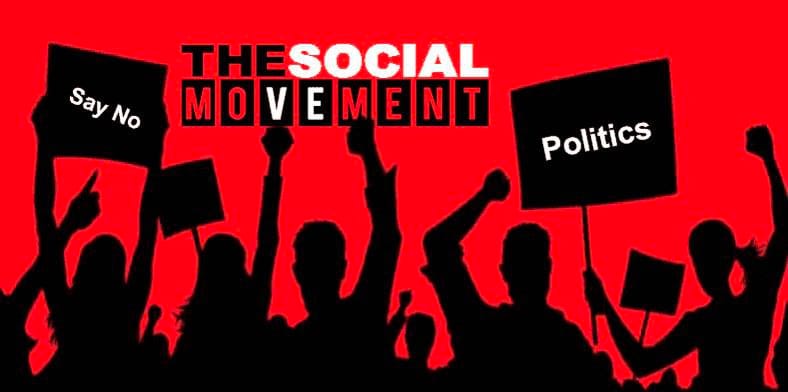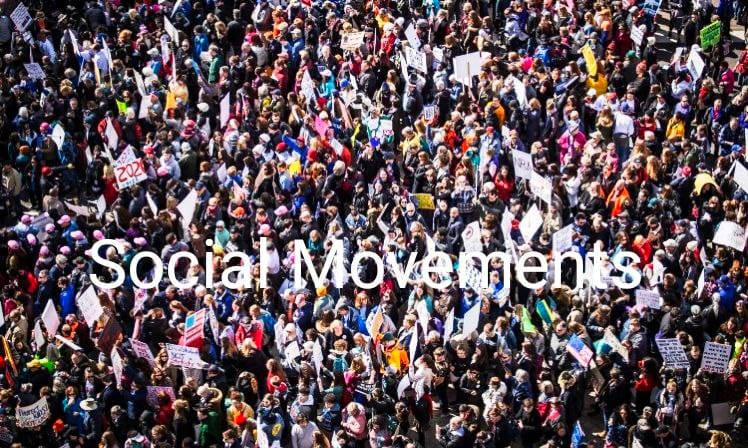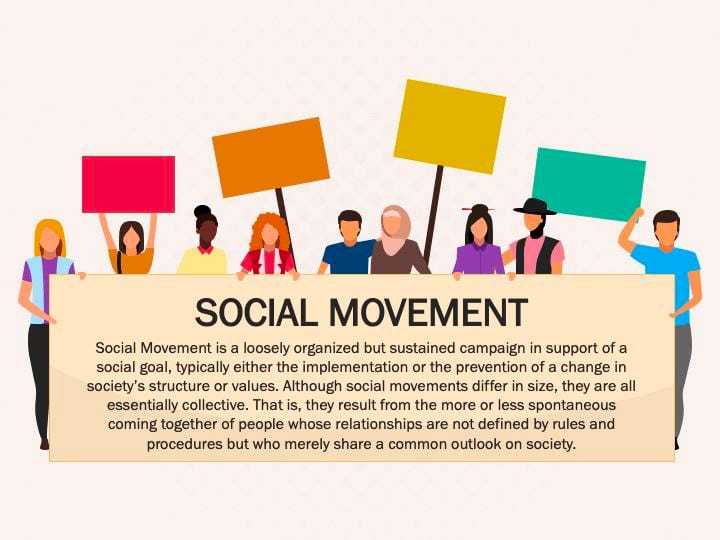Social Movements Meaning, Causes & Remedies
Meaning of Social Movements

Social movements are collective efforts by groups of individuals or organizations to promote, resist, or undo social, political, economic, or cultural changes. These movements are driven by shared goals and ideologies and involve sustained activities to achieve their objectives. Social movements can be local, national, or global, and they often seek to address issues that existing institutions fail to resolve.
Causes of Social Movements

- Social Inequality and Injustice:
- Economic Disparities: Significant gaps between the rich and the poor can lead to movements advocating for economic justice.
- Racial and Ethnic Discrimination: Marginalized communities may organize to demand equal rights and opportunities.
- Gender Inequality: Women and LGBTQ+ individuals often mobilize to fight for their rights and against discrimination.
- Political Factors:
- Authoritarianism and Lack of Democracy: Oppressive regimes and the absence of democratic processes can spur movements for political freedom and democracy.
- Corruption and Maladministration: Widespread corruption and ineffective governance can lead to public discontent and mobilization for reform.
- Cultural and Identity Issues:
- Cultural Repression: Suppression of cultural practices and identities can lead to movements advocating for cultural recognition and autonomy.
- Identity Politics: Movements often arise around issues of identity, including race, gender, and sexuality, to address specific grievances and promote rights.
- Economic Factors:
- Unemployment and Underemployment: High levels of joblessness can lead to movements demanding economic opportunities and better working conditions.
- Economic Policies: Austerity measures and other economic policies that disproportionately affect certain groups can provoke social movements.
- Environmental Concerns:
- Environmental Degradation: Pollution, deforestation, and climate change can lead to movements advocating for environmental protection and sustainable development.
- Resource Exploitation: Movements often arise in response to the exploitation of natural resources that harm local communities.
- Technological Changes:
- Impact of New Technologies: Technological advancements can disrupt traditional industries and ways of life, leading to movements that address the negative consequences.
- Globalization:
- Impact on Local Economies and Cultures: Globalization can lead to the loss of local jobs and cultural identities, prompting movements to protect local interests.
Remedies for Issues Addressed by Social Movements

- Policy Reforms:
- Legislation and Regulation: Enacting laws that address the root causes of social inequalities and injustices.
- Economic Policies: Implementing policies that promote fair wages, job creation, and economic redistribution.
- Institutional Changes:
- Democratic Governance: Strengthening democratic institutions to ensure representation and accountability.
- Anti-Corruption Measures: Establishing robust mechanisms to combat corruption and ensure transparent governance.
- Education and Awareness:
- Public Awareness Campaigns: Educating the public about social issues and the importance of equality and justice.
- Inclusive Education: Promoting curricula that emphasize diversity, tolerance, and social responsibility.
- Legal Actions:
- Judicial Interventions: Using the legal system to protect rights and challenge unjust practices.
- Human Rights Advocacy: Supporting organizations that work to protect and promote human rights.
- Economic Initiatives:
- Job Creation Programs: Developing initiatives to create employment opportunities, especially in disadvantaged communities.
- Support for Small Businesses: Providing financial and technical support to small and medium-sized enterprises.
- Community Empowerment:
- Grassroots Organizing: Supporting local organizations and movements that empower communities to advocate for their rights.
- Participatory Decision-Making: Encouraging inclusive decision-making processes that involve affected communities.
- Environmental Protection:
- Sustainable Practices: Promoting sustainable agricultural, industrial, and urban development practices.
- Conservation Efforts: Implementing measures to protect natural resources and biodiversity.
- Technological Adaptation:
- Skills Training: Providing training programs to help workers adapt to technological changes.
- Equitable Access: Ensuring that the benefits of technological advancements are accessible to all segments of society.
Conclusion
Social movements play a critical role in addressing societal issues/problem and advocating for change. Understanding the causes of these movements and implementing appropriate remedies can help create a more just and equitable society. Governments, institutions, and individuals all have roles to play in supporting positive social change and addressing the underlying issues that give rise to social movements.


Post Comment